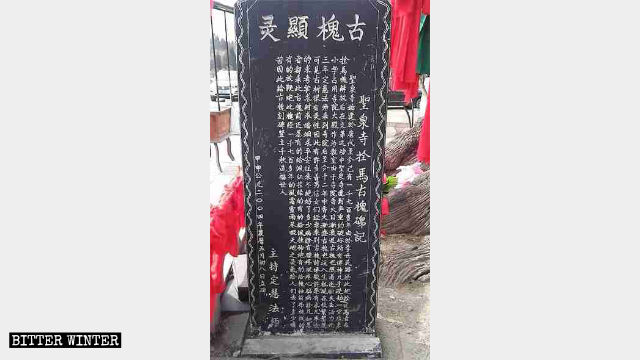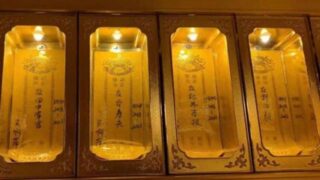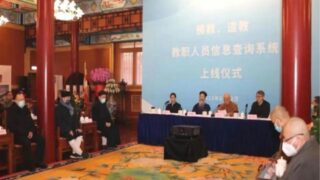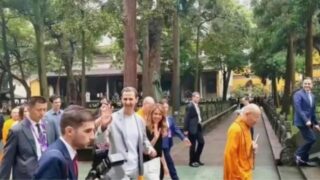Authorities are harassing a once flourishing, more than 1,000-year-old temple and subject monks to increased control and indoctrination.
Feng Gang
In the current climate of religious persecution in China, even the venues of worship that had been approved by the Chinese Communist Party (CCP) are being persecuted. One such example is Shengquan Temple (聖泉寺), a more than a thousand-year-old ancient temple located in Xinxing village in the suburb of Yangquan city in north China’s Shanxi Province. The temple that was once the center of local Buddhist activities, under suppression by the CCP authorities, is witnessing a gradual decline and faces closure.


Shengquan Temple was built during the rule of Tang dynasty, spanning the 7th to 10th centuries. It was severely damaged during the Cultural Revolution, and almost all of the statues inside the temple were taken away. After Venerable Dinghui became the abbot of Shengquan Temple in 1993, he led the monks at the temple to raise funds, with which they repaired the temple and expanded its building complex, at a total cost of over 30 million RMB (more than $4.4 million), and the number of monks increased to over 100. As Venerable Dinghui went around giving lectures to promote the teachings of Buddhism, more and more worshippers flocked to the temple, and it increasingly flourished.


However, starting in 2017, the local Religious Affairs Bureau demanded that the temple reduce its scale, and ordered the demolition of its buildings. The next year, the Bureau successively demolished three buildings from the temple’s expanded complex under the pretext that they were of “substandard quality,” leaving behind only the small pre-expansion temple. Most of the resident monks were evicted from the temple, and an 18-meter-tall Buddha statue inside the temple was removed. Due to the demolition, the statues that were once inside had nowhere to be moved, so they were abandoned under the eaves of the destroyed buildings of the temple’s expanded complex.


According to an observer who follows the status of religious freedom in China, the fact that the Chinese government often cites reasons like “substandard quality” or “inadequate fire control measures” to shut down or demolish places of worship is used to justify and “legalize” its religious suppression and it’s an attempt to cover up the truth behind it.


A Buddhist who requested anonymity told Bitter Winter that the authorities’ suppression of the temple extends far beyond demolishing its buildings. The authorities are also seeking to strengthen the ideological transformation of the temple’s monks.
He revealed that the temple’s current abbot, Yizhao, who succeeded Venerable Dinghui in 2014 by the CCP’s appointment, has fully cooperated with the authorities’ forced demolition policy. He was quoted as saying that regardless of where one is, the Party must always come first. According to the new abbot, disobeying the Party is tantamount to rebellion; even when worshipping Buddha, one must first thank the Party.
The Buddhist told Bitter Winter that the abbot once said that monks should not be too superstitious. “You all say that believing in Buddha can keep you safe, but has it saved you? Not at all! Having the Party and the state is sufficient,” the Buddhists quoted Abbot Yizhao.


Assisted by the new abbot, the CCP is successfully “sinicizing” the temple. Yangquan city’s Religious Affairs Bureau often requires the temple’s monks to transcribe the Party rules and various government documents, which are then submitted by the abbot to the China Buddhist Association. Officials also conduct assessments of the temple’s monks at irregular intervals.
One local Buddhist said, “The temple is managed by the state now. Whenever Religious Affairs Bureau officials come for an inspection, these monks are forced to study [the CCP’s policies]. There is nothing they can do about it. Monks are supposed to recite Buddhist scriptures and worship Buddha, but now, they are forced to recite government documents and worship the Communist Party.”
He added, “The government always finds many excuses in cracking down on religion, but the essence always remains the same: The authorities’ ultimate goal has always been to make religion disappear.”









